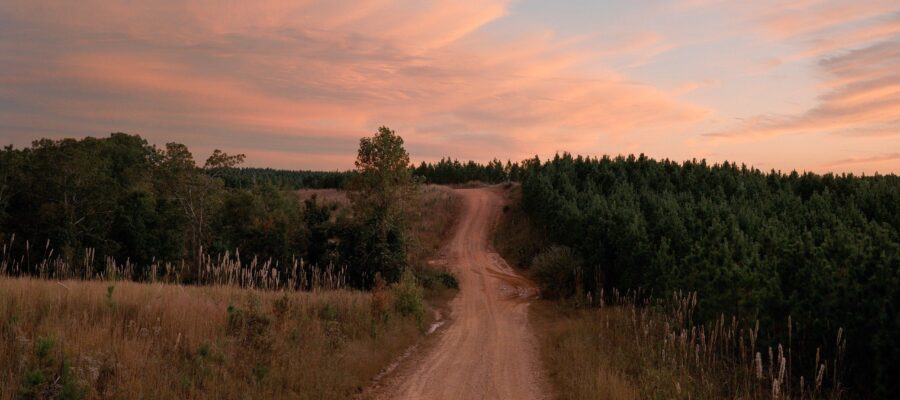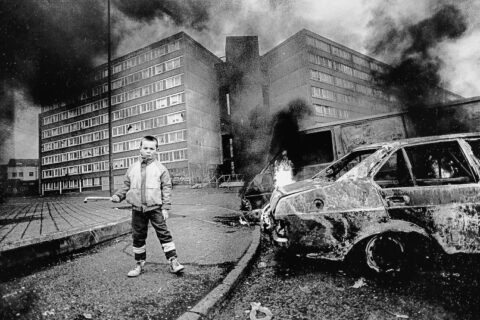During these terribly tyrannical times, it’s easy to get blackpilled about the doom and gloom of political life. Often folks are buying into the nihilistic “all is lost” or “what does it matter” attitude about life or, on the other end of the spectrum, extreme collapse accelerationism. Both sides are simply ditches lining the same road, and being sympathetic to either side can be perilous. Neither side offers a valid view of the future. In fact, this can be said of most worldviews. The majority of worldviews or future hopes offered in today’s culture, and even in past cultures, do not proclaim a future victory but rather a longing for the past. A sense of nostalgia is in the air around them. The purveyors of this mindset often drum up images of past golden ages, usually remembered more romantic than they were, and desire for the past to return.
A shining mainstream example of this was the campaign slogan “Make America Great Again.” It is a rather agreeable slogan when taken at face value; after all, why shouldn’t we want our country to be great? To that, I agree. I’m not pointing out the “Make America Great” but the “Again.” Often, when “MAGA” is used, it brings memories from the 1950s through the 1980s, but it doesn’t cast a valid vision for the future. I love the past and our history, but we do our people a disservice to pine over the past and not fight for the future of our people. Our Christian ancestors had a hopeful view of the future, and one they planned for their posterity to inherit.
Since the mid 19th century, the South has been wedded to an eschatology of defeat. For those who don’t know eschatology, it is the study of last things, or future things. The one where Christians are pushed back to the edge of the pit, Christ has a semi return, the Church is raptured out, and seven years of tribulation will come is a similar mindset akin to nihilism. In other words, “Why polish a sinking ship’s brass?” And, if that school of thought is true, the natural tendency is apathy and pessimism since nothing matters. The fact is this is a very new worldview in the Southern Church. What then was this optimistic option that was relatively present throughout most Church history? Ultimately, it was some variant of amillennialism or postmillennialism. These positions have many different variants within them, but the one thing they had in common for the most part is they are optimistic about the future of our people. Instead of Christians on the edge of a cliff, waiting for someone to save them, we instead see the future like our Lord sees it in Matthew 16:18 – “And I tell you that you are Peter, and on this rock I will build My church, and the gates of Hades will not prevail against it.”
Gates are a defensive structure, not an offensive one. So, Christ said the Church will be on offense and we would eventually storm the cities of Hades. This mindset is what created the greatest people and culture the world has ever seen, and why we revere it to this day. Our ancestors’ accomplishments still impact us today, regardless of how many times the Left tries to cancel their work. But, we cannot let the torch burn out. This is why we must have an optimistic eschatology. We must pick this torch up and continue what was started by our fathers and honor their struggle. This work can’t end with you!
This, honestly, is why I’m so impressed with someone like Andrew Torba. The man could have taken the easy road and worked in Silicon Valley for a very good salary. Instead, he decided to build. In the same way Apple was started in a garage, so, too, with Gab. However, unlike Apple, there was significant hindrances toward Gab getting started (and staying afloat). That didn’t stop Torba and he continued to build despite opposition. Gab, Dissenter, GabTV, and now Gabpay (Gab phone is in the works) are his creations. Torba is making a complete ecosystem for the canceled, disenfranchised, and those tired of the Big Tech oligarchy. In order for our way of life to prosper, we must begin thinking about alternative markets – making new avenues of doing business and reducing our need from the mainstream markets. We must become unfragile, uncancellable, and uncontrollable.
Returning to tradition is actual a good battle cry in this case, but it cannot remain there. Returning to the past and staying there doesn’t actually solve the long-term problems. We need to return to the past as to take an alternate course from there. Learn from our people of yesteryear, focus on trades, mimic the local economic systems, bring resources inside your community, and don’t let those resources leave. Enrich your people, not Fortune 500 box stores. So, yes, let’s return to tradition, but let’s find a new way forward, a better way forward. The people of St. Andrew’s Cross must learn to build to last. We are people with eternity in mind. What we do actually matters in the grand scheme of eternity. I think once someone actually grasps this truth, it will fundamentally create change (even the mundane). We stand on the shoulders of our ancestors and we are the ancestors of our future generations.
Our people’s future is not lost. This torch will be passed on because the fire was not ours to begin with. We are actors playing a role in the grand narrative of history, each an individual thread in the tapestry God is weaving to show His glory. Building things to last is crucial for our posterity, setting the foundation upon which they build is the essence of returning to tradition. Where we forked from the past to the Industrial Revolution is where we must return, and rebuild a new sustainable way to live. From changing our farming practices to the way commerce is done, we must look back – then, go forward.
The future is in hope. We have this hope because Christ rose from the dead and is seated at the right hand of the Father. Christ actually came in the flesh and actually rose in the flesh. Therefore, we have an actual fleshly future. This same body we inhabit now, will be the one we have for eternity, how much more will what we built last for eternity and be that foundation of the eternal city of God.
-By Credo Knox

O I’m a good old rebel, now that’s just what I am. For this “fair land of freedom” I do not care at all. I’m glad I fit against it, I only wish we’d won, And I don’t want no pardon for anything I done.






Excellent! We move forward with knowledge of the past.
Good point about gates. Thanks for that.